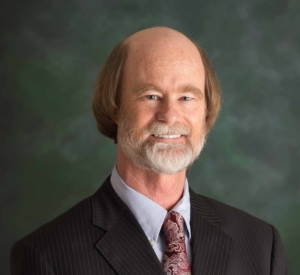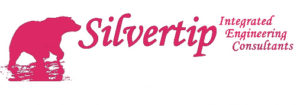Litigation Support Services We Provide / Understanding Expert Services (FAQ)
Michael D. Haughey, P.E., HBDP, CEM, LEED AP
Areas of Expertise:
Mechanical Engineering for Buildings
HVAC Engineering
Plumbing Engineering
Fire Protection, Sprinklers
Building Performance Improvement
Sustainability & LEED
Michael D. Haughey, P.E.
HBDP, CEM, LEED AP
Michael D. Haughey, P.E. has been practicing mechanical engineering since 1974 and is licensed in Colorado, Utah, Wyoming, and New Mexico and has an NCEES record (send us an e-mail if you need more information or a CV). Relevant qualifications and experience include:
50 years experience in HVAC, Mechanical, & Plumbing engineering design, facilities engineering, energy analysis, commissioning, investigation and troubleshooting, and sustainability
Expert Witness Services (2014 through present): investigation, analysis, expert reports, deposition, testimony, mitigation and repair recommendations
Litigation Support Services (sub-consultant to Expert Witness) (2003 through present): investigation, analysis, draft expert reports, testimony, mitigation and repair recommendations
Past President Rocky Mountain Chapter ASHRAE (the American Society of Heating, Refrigerating, and Air Conditioning Engineers) (Life Member)
CRES (Colorado Renewable Energy Society) Board of Directors and Secretary
USGBC (US Green Building Council) – Colorado Board of Directors, Programs Coordinator, Greenbuild 2006 Host Committee Chair
35 years in Toastmasters International including past president of Cherry Creek Toastmasters
Adjunct Professor, HVAC Design, CU Boulder;
Adjunct Professor, HVAC Design, CU Denver.
Keynote Speaker for the Rocky Mountain Chapter ASHRAE 2004 Annual Tech Conference.
Presented over 55 seminars including Low Energy Mechanical Systems, Ground Source Heat Pumps, LEED, High Altitude Design, Ice Thermal Storage, Economizers, Living Buildings, Seismic Risk in Colorado, and Sustainable Design.
Developed and presented seminars and presentations for groups including the Rocky Mountain Chapter of ASHRAE, Pikes Peak Chapter of ASHRAE, CRES, the Council of Educational Facility Planners International, USGBC – Colorado Chapter, USGBC Greenbuild 2005 Technical Session, AGC (Colorado), AIA Committee on the Environment, EPA & Denver Mayor’s Office, IFMA, BOMA, BOAC, SAME, and CANDO Wyoming
Member of the Colorado Earthquake Hazard Mitigation Council.
Member of the International Code Council
Past member AIA Colorado Committee on the Environment, AEE, and RMAEE.
Services We Provide:
Mechanical expert investigations and reports (HVAC, Plumbing, Fire Protection, Energy Conservation)
Expert Witness Testimony: independent testimony at depositions or trial; witness observations and testing; analyses; and expert opinion and reports.
HVAC Expert Witness, Mechanical Engineering Expert Witness, Plumbing Expert Witness, Fire Sprinklers Expert Witness, Energy Conservation Expert Witness, Energy Efficiency Expert Witness.
Review of designs and installations by experienced HVAC, plumbing, and fire protection expert to assist in documenting and/or solving building mechanical system performance problems and/or claims.
Infrared photography to assist in evaluation of thermal envelope and HVAC issues
Assist in resolution of complicated and/or difficult cases
Help develop alternative solutions to avoid or reduce the extent of litigation through proactive problem-solving
Our services are available to expert witness specialists, attorneys, Insurance companies, defendant companies, and claimants.
Field monitoring services. For example, these may involve field measurement of temperatures, humidity, electrical data, and similar parameters. Data can recorded on data loggers for analysis and documentation.
Field observation documentation: observe on-site testing, selective demolition, and existing conditions with photo-documentation and reports.
Evaluation of building mechanical systems
Systems and component sizing
Heating, cooling, humidification, dehumidification, and ventilation load calculations
Energy-efficiency
Code compliance
Sustainability and general conformance to LEED standards
Evaluation of building
Applications and Example Projects
Investigation, Analysis, Troubleshooting, Forensic Engineering, Expert Reports
About Expert Witness Services
Expert Witness and Litigation Support services are provided to clients in many circumstances.
Often you will want an expert to independently evaluate the situation so that you know more about your exposure and can make a better decision about whether to settle a case, enter mediation or arbitration, or proceed to a bench or a jury trial.
A better understanding of the underlying issues can lead to a mutually acceptable solution that avoids litigation.
When there are serious or numerous problems, we can help identify and document these to improve your outcome in litigation.
When necessary we will provide depositions and testimony in court.
Building Performance Evaluation services can be utilized when the nature of system problems is not clearly understood:
Is your building stuffy? Are you concerned about whether there is adequate ventilation?
A building that has air conditioning equipment that is too small for the current situation can exhibit many different symptoms. It may feel stuffy Humidity may be too high, particularly at certain times of the year.
A building that has inadequate ventilation may also feel stuffy. Staying awake may be more difficult. Indoor air quality can be an issue with the accumulation of toxins that are not being sufficiently removed by the ventilation system.
A building with performance issues can result in lower occupant productivity which directly impacts profitability.
Understanding Expert Services (FAQ)
Why do I need an expert in mechanical engineering, HVAC engineering, plumbing engineering, fire sprinkler systems, or fire protection?
If you are asking this question, you may be a lawyer on a dispute involving problems with a building that do not seem related to the mechanical systems. That can change with time particularly if you are working for the defendant. Often as the process proceeds, the plaintiff will add items to the list of complaints. Other times the initial investigations will reveal additional issues or potential issues. When that happens, all the experts may want to witness any resulting additional investigations or observations. This can add more cost than if the mechanical expert was present during the initial phases. It can also compress the necessary additional investigations, analyses, and reports into a timeframe that is too short.
Are you a design professional who has been named in a claim? Your most important first step is to talk to your insurance carrier and an attorney who specializes in construction defect claims. Even though you may be an expert in your field, they will probably advise retaining an independent expert. There are a few reasons for this. One is that in giving testimony or depositions, you will be suspected of being biased since you are defending yourself. An independent expert will testify to his/her factual findings in an un-biased manner. A peer review of the HVAC design, for example, by another expert adds credibility to the evaluation of the design. This is essential to maintaining credibility and professionalism. That leads to another reason: the expert can advise you and your legal representation about the issues that the plaintiff’s experts are likely to find. This knowledge will help you decide whether to seek a settlement. It is also likely that you may be too close to the project to be your own best advisor. An independent expert may look at places in your documentation that you may have forgotten about and may find items in the plaintiff’s documentation that are not easily found or are buried in mountains of paperwork. The expert may find documentation that supports your contention that you acted professionally and properly and in accordance with the standard of care for the locality of the project. The expert may also find documentation that is problematic and could make a good case for seeking a settlement.
If you are a contractor, developer, insurance representative, or the plaintiff, a mechanical systems expert can be invaluable as a guide through the myriad of processes that must come together for a building to be properly built. These range from design processes through installation, maintenance, and even operation issues. Are the building and its systems being maintained and operated properly? Is there a problem with the original (or remodel) systems design? Was the design done in accordance with locally acceptable practices (standard of care)?
When do I need to retain an expert?
The answer to this question of course depends on the situation. It might be useful to ask when is it too late to retain an expert. The work of an expert is more than a quick look at a problem and rendering an opinion. The process may include, among other possible tasks, visits to the project, investigations, witnessing the investigations of others, doing research and analyses, and then writing a report. All of these tasks and more require time to be done properly. If the time is too brief, there is the risk of a lesser result that can culminate in losses or missed opportunities that could have been avoided. Retaining an expert early gives you access to advice on how long various tasks could take. Waiting too long may put you in a position where the expert you prefer is already retained by another party.
Do I need a local expert?
There are many instances in which a local expert can be invaluable even if you also retain an expert who is not local. One example is when the project is at a high altitude. A local expert can help evaluate aspects of the project design and performance that are affected by altitude with which an expert from a lower elevation may not be familiar. A more common example is the need for a local expert who is familiar with local codes and the local standard of care. Another is that travel costs can be reduced by having an expert who is close to the project.
What qualities make a good expert witness?
An expert witness will need to wear many hats. Being an expert in the particular field is an obvious qualification. Also important is the ability to seek out and understand small details and the patience to undertake tedious investigations. Once the engineering and analyses are completed, some of the more important qualifications come into play. There will be participants in the process with a wide variety of backgrounds and understanding of the issues in question. The ability to give clear and simple explanations of complex technical issues will be important for audiences who are not experts in the particular field. You might look for experience in teaching, presenting seminars, or even giving speeches as valuable supplements for “hands-on” experience. Look for an expert whose writing is easy to understand. Often overlooked is the ability to remain independent and un-biased. This independence is essential for the credibility needed in the courtroom. Even more importantly, you need to be able to rely on the expert on your side giving you an honest evaluation not only of the strengths of your case, but especially of its weaknesses. You can be certain the opposition is likely to find those weaknesses, so the earlier you understand them the better.
